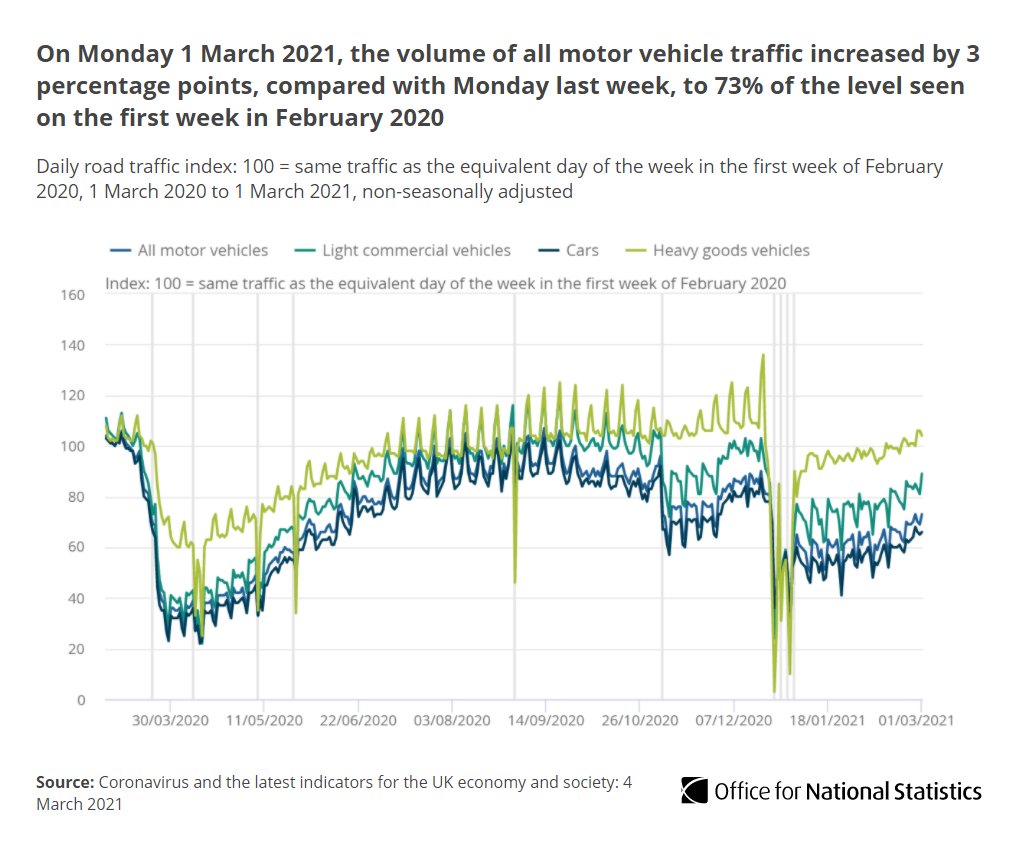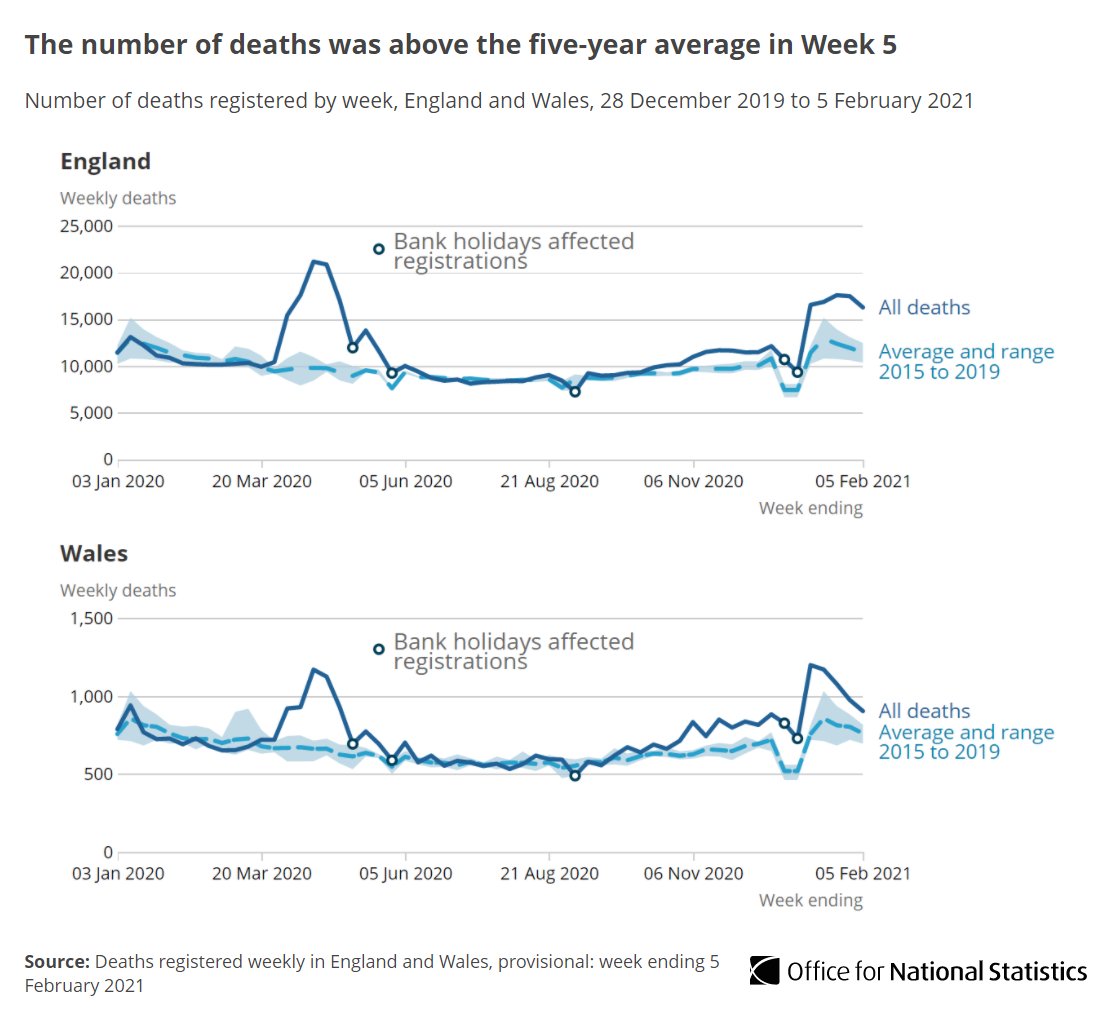
We’ve released our latest economic and society impact indicators as part of our response to the #COVID19 pandemic ow.ly/Oy0C50DPMc2 

.@bankofengland’s CHAPS-based indicator of debit and credit card purchases decreased by 3 percentage points from last week to 73% of its Feb 2020 average ow.ly/N5rC50DPMqi 

19% of the workforce of all UK businesses (excluding those permanently ceased trading) were furloughed in mid-February, according to initial results from the Business Insights and Conditions Survey.
This is broadly unchanged from 20% in the previous wave ow.ly/QCvO50DPMuj
This is broadly unchanged from 20% in the previous wave ow.ly/QCvO50DPMuj

44% of currently trading UK businesses reported a negative impact on their turnover compared with what is normally expected for this time of year, according to initial results from the Business Insights and Conditions Survey ow.ly/h8pM50DPMxz
49% of working adults travelled to work in the last 7 days (exclusively or in combination with working from home) in the week ending 28 Feb 2021, according to the latest Opinions and Lifestyle Survey.
This is up 3 percentage points from last week ow.ly/SFs750DPMz7
This is up 3 percentage points from last week ow.ly/SFs750DPMz7
Shipping data from @exactEarth show an average of 344 daily ships visits in the week ending 28 Feb 2021, a 4% increase from the previous week but 8% lower than the same period a year ago ow.ly/ulbl50DPMCx 

According to @Springboard_ in the week to 27 Feb 2021, overall retail footfall in the UK was at 43% of its level in the equivalent week of 2020.
This is an increase of 5 percentage points from last week ow.ly/K1u350DPMFZ
This is an increase of 5 percentage points from last week ow.ly/K1u350DPMFZ

In the week to 27 February 2021, daily retail footfall in all UK countries and regions continues to be substantially lower than its level in the equivalent period of 2020 ow.ly/7Xbo50DPMIG 

The volume of online job adverts in the week ending 26 February was at 86% of the volume in the same week last year, according to data from @Adzuna ow.ly/hWfH50DPMPP 

Motor vehicle traffic volume on Monday 1 March 2021 was 73% of the level seen in the first week of Feb 2020, a 3 percentage point rise on last week.
This is the highest volume so far in 2021, but still below pre-Christmas levels according to @DfTstats ow.ly/VnWe50DPMSg
This is the highest volume so far in 2021, but still below pre-Christmas levels according to @DfTstats ow.ly/VnWe50DPMSg

• • •
Missing some Tweet in this thread? You can try to
force a refresh












